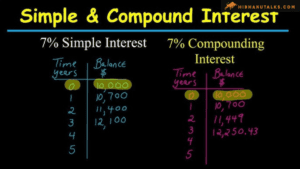
SEBI’s New Guidelines for Faster Trading of Bonus Shares: A Game-Changer for Investors
Contents
- 1 New SEBI guidelines
- 1.1 SEBI’s New Guidelines for Faster Trading of Bonus Shares: A Game-Changer for Investors
- 1.1.1 SEBI’s Game-Changing Move: Faster Credit and Trading of Bonus Shares
- 1.1.2 What Does T+2 Mean for Investors?
- 1.1.3 What Changes Under SEBI’s New Guidelines?
- 1.1.4 Benefits of the New Guidelines for Investors and Issuers
- 1.1.5 The Broader Impact on the Stock Market
- 1.1.6 Conclusion:
- 1.1.7 FAQs:
- 1.1.7.1 1.What is SEBI’s new guideline regarding bonus shares?
- 1.1.7.2 2.What does T+2 mean?
- 1.1.7.3 4.How does the new guideline benefit investors?
- 1.1.7.4 5.When will SEBI’s new guidelines come into effect?
- 1.1.7.5 6.What was the previous system for crediting bonus shares?
- 1.1.7.6 7.What is the importance of eliminating the temporary ISIN?
- 1.1.7.7 8.How will the new guidelines impact market efficiency?
- 1.1.7.8 9.What should companies do after announcing a bonus issue?
- 1.1.7.9 9.What is the deemed date of allotment for bonus shares?
- 1.1.7.10 10.Why has SEBI introduced these guidelines?
- 1.2 New SEBI guidelines
- 1.3 Reliance Power Settles Rs 3,872 Crore Obligations and Achieves Debt-Free Status
- 1.1 SEBI’s New Guidelines for Faster Trading of Bonus Shares: A Game-Changer for Investors
New SEBI guidelines
Good news for investors! Starting October 1, 2024, SEBI’s new guidelines will allow trading of bonus shares just two days after the record date. This is a significant shift from the previous 2-7 day timeline, enhancing market efficiency and offering quicker access to bonus shares for investors. How will this impact the trading landscape and what should investors be aware of? Let’s break it down!


On Monday, the Securities and Exchange Board of India (SEBI) introduced new guidelines aimed at speeding up the process of crediting and trading bonus shares. Under these new rules, investors will be able to trade their bonus shares just two days after the record date, starting from October 1, 2024. This is a major step forward in reducing delays and boosting efficiency in the Indian stock market.
Previously, the rules under SEBI’s ICDR (Issue of Capital and Disclosure Requirements) prescribed overall timelines for the implementation of bonus issues but did not specify when bonus shares would be credited or traded. Investors often had to wait between 2-7 working days after the record date to trade their new shares. SEBI’s new T+2 system will dramatically reduce this waiting period.
What Does T+2 Mean for Investors?
The term T+2 refers to the time frame in which bonus shares will now be credited and available for trading—specifically two working days after the record date (T day). For example, if the record date for a bonus issue is a Monday, investors can begin trading those shares by Wednesday (T+2). This faster process will apply to all bonus issues announced on or after October 1, 2024.
Why is this important? The quicker access to bonus shares will not only benefit investors by enabling faster trading but will also improve market liquidity and overall efficiency.


What Changes Under SEBI’s New Guidelines?
SEBI’s new guidelines will streamline the entire process of bonus share issuance and trading. Here are the key changes:
- Faster Trading: Bonus shares will now be available for trading just two days (T+2) after the record date, significantly reducing the previous waiting period of 2-7 days.
- Direct Credit to Permanent ISIN: Earlier, bonus shares were credited through a temporary ISIN (International Securities Identification Number). SEBI has now removed this requirement, allowing bonus shares to be credited directly into the existing permanent ISIN of the company’s shares.
- In-Principle Approval Timeline: Companies proposing a bonus issue must now apply for in-principle approval from the stock exchange within five working days of the board meeting that approves the bonus issue.
- Deemed Date of Allotment: The deemed date of allotment will now be the working day after the record date (T+1 day). Stock exchanges will issue a confirmation notice with the number of bonus shares being issued and the deemed allotment date.
- Faster Credit to Depositories: Issuers must submit all necessary documents to the depositories by 12 pm on T+1 day to facilitate the quick credit of bonus shares.


Benefits of the New Guidelines for Investors and Issuers
SEBI’s new guidelines are expected to provide significant benefits to both investors and issuers:
- For Investors: The reduced time gap between the allotment of bonus shares and their availability for trading means investors can capitalize on their shares much sooner. This will enhance market liquidity and enable quicker profits from bonus share allocations.
- For Issuers: Companies will benefit from streamlined processes and improved investor confidence. The elimination of the temporary ISIN requirement will also simplify administrative procedures, making the process more efficient for issuers.
The Broader Impact on the Stock Market
By implementing these guidelines, SEBI is addressing a long-standing issue in the Indian stock market. The quicker crediting and trading of bonus shares will help make the market more efficient and investor-friendly. For institutional investors and retail traders alike, this means faster access to bonus shares, which can lead to more timely trading decisions and potentially better returns.
Additionally, this move could boost overall participation in bonus share issues, as the reduced timeline makes it a more attractive option for investors looking for quicker liquidity.


Conclusion:
SEBI’s new guidelines for the faster trading of bonus shares mark a major milestone in improving market efficiency. With the implementation of T+2 trading starting October 1, 2024, New SEBI guidelines, investors can now look forward to faster access to bonus shares and reduced delays in the trading process. This change is not just a win for investors but also for the broader market, enhancing liquidity and streamlining operations for issuers. As SEBI continues to modernize its regulations, the Indian stock market is set to become more dynamic, efficient, and investor-friendly.
FAQs:
A. SEBI now allows trading of bonus shares just two days (T+2) after the record date, effective October 1, 2024.
2.What does T+2 mean?
A. T+2 refers to the timeline of two working days after the record date, after which investors can trade their bonus shares.
4.How does the new guideline benefit investors?
A. Investors will be able to trade their bonus shares faster, reducing the previous waiting period of 2-7 days and improving liquidity.
5.When will SEBI’s new guidelines come into effect?
A. The guidelines will apply to all bonus issues announced on or after October 1, 2024.
A. Previously, bonus shares were credited within 2-7 working days and often required a temporary ISIN before being traded.
7.What is the importance of eliminating the temporary ISIN?
A. The removal of the temporary ISIN streamlines the process, allowing bonus shares to be credited directly into the existing permanent ISIN.
8.How will the new guidelines impact market efficiency?
A. By reducing the time to trade bonus shares, SEBI’s guidelines will increase market liquidity and improve overall efficiency.
9.What should companies do after announcing a bonus issue?
A. Companies must apply for in-principle approval from the stock exchange within five working days of the board meeting that approved the bonus.
A. The deemed date of allotment is the working day after the record date (T+1 day).
10.Why has SEBI introduced these guidelines?
A. SEBI aims to reduce delays, improve market efficiency, and provide quicker access to bonus shares for investors.
New SEBI guidelines
Reliance Power Settles Rs 3,872 Crore Obligations and Achieves Debt-Free Status





















2 comments